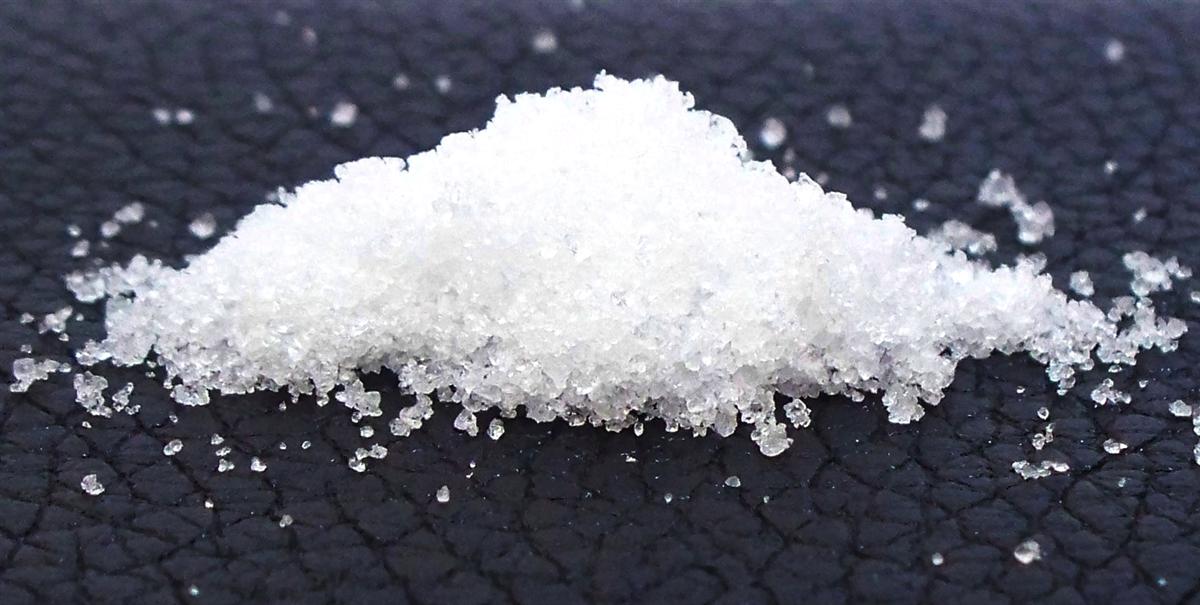Xylitol - Natural Sugar

Common Names: Xylitol, Birch sugar, Wood sugar, E 967, Sugar alcohol, Pentahydroxypentane, Xylit, Xylitole, Xylitolu, Xylitoli, Natural sweetener, Nature-identical sweetener
Short Introduction
Xylitol is a natural, low-calorie sweetener primarily derived from birch bark, but also present in fruits, vegetables, and some mushrooms. It is valued as a sugar substitute with a lower glycemic index and added dental health benefits, making it a popular choice for people seeking a healthy lifestyle or managing diabetes.
Detailed Description
Xylitol is a natural, low-calorie sweetener with a structure similar to table sugar, but it is primarily produced from birch bark due to its high concentration there. Naturally, xylitol is also found in the fibers of many fruits (such as plums, raspberries, strawberries), vegetables (like corn husks), oats, and certain mushrooms.
Botanical Information
Xylitol is an organic compound belonging to the group of sugar alcohols, scientifically known as 1,2,3,4,5-pentahydroxypentane, with the formula (CHOH)3(CH2OH)2, and molecular formula C5H12O5. Xylitol occurs naturally in the cell walls of many plants. While it can be extracted directly from natural sources such as the sap of birch trees, most commercial xylitol is produced industrially from xylan (a type of hemicellulose) obtained from wood or corn cobs, which is then hydrolyzed to xylose and hydrogenated to create pure xylitol. Biotechnological methods, including fermentation and microbial processes using specific yeasts such as Candida tropicalis and Candida guilliermondii, are also utilized to maximize yield and purity. In the European Union, xylitol is classified as food additive E 967.
Usage / Dosage
Xylitol was discovered at the end of the 19th century nearly simultaneously by German and French chemists and quickly gained popularity in Europe as a sweetener that does not impact glucose or insulin levels, making it suitable for people with diabetes. Xylitol provides about 40% fewer calories than table sugar, making it an optimal and beneficial sugar substitute. It is widely marketed as a healthy alternative for those seeking to reduce the risk of dental cavities and related complications, in addition to supporting various dietary regimens and potentially benefiting individuals with osteoporosis.
Xylitol-sweetened foods and beverages, in place of typical fast-acting sugars, are clinically supported to help reduce the demineralization of teeth and maintain dental mineralization. Studies using electron microscopy demonstrate that xylitol can effectively incorporate minerals deep into demineralized tooth enamel, thereby promoting oral health. Chewing gum with 100% xylitol or consuming about 3 grams of pure xylitol dissolving on the tongue after meals (2–3 times a day) has been shown to lower dental plaque concentration and enhance cavity healing. Some studies also suggest a potential benefit in increasing bone matrix remineralization.
Bacteria that cause cavities (mainly Streptococcus mutans) prefer six-carbon sugars and disaccharides as energy sources. Xylitol, being non-fermentable, enters bacterial cells via non-specific transporters and disrupts their metabolic processes, effectively starving bacteria and reducing their growth and reproduction. This leads to a healthier oral cavity and improved dental condition. The U.S. FDA recognizes xylitol-containing products as dietary supplements and allows labeling that notes they do not promote dental caries.
Another proven benefit of xylitol is its effect on blood sugar levels. Foods sweetened with xylitol cause a reduced postprandial glycemic response compared to those sweetened with other sugars, making xylitol a favorable option for individuals with diabetes, metabolic syndrome, insulin resistance, hypertension, high cholesterol, and elevated thrombotic risk. Xylitol does not contribute to spikes in blood glucose or insulin, and regular consumption may even help delay type 2 diabetes onset when paired with a healthy lifestyle.
Xylitol also inhibits the growth of bacterial strains such as Streptococcus pneumoniae and can reduce the ability of Haemophilus influenzae to adhere to mucosal surfaces, lowering the risk of infections. Clinical studies indicate that xylitol-rich gums and nasal sprays may reduce the occurrence of acute otitis media (middle ear infections) in children by about 25%.
Xylitol is considered safe and well-tolerated for both adults and children, although it is recommended to gradually increase intake to allow the digestive system to adapt. Initial doses of 15–20g/day may cause laxative effects, but most individuals can tolerate up to 100g per day (for adults) or 40g per day (for children under 12) after a short adaptation period. Xylitol is not suitable for children under one year due to immature metabolism. Warning: Xylitol is toxic to household pets, particularly dogs, and can cause hypoglycemic shock. Immediate administration of regular sugar is recommended as first aid in such cases.
Xylitol is highly versatile in the kitchen, suitable for both hot and cold dishes, baking, cooking, and sweetening beverages. Its low glycemic index and insulin-independent metabolism make it an excellent sweetener for individuals with type 2 diabetes—up to 50g daily is considered appropriate. Research also indicates that xylitol may help delay or mitigate the risk of type 2 diabetes in those who consume it regularly and maintain a healthy lifestyle.
